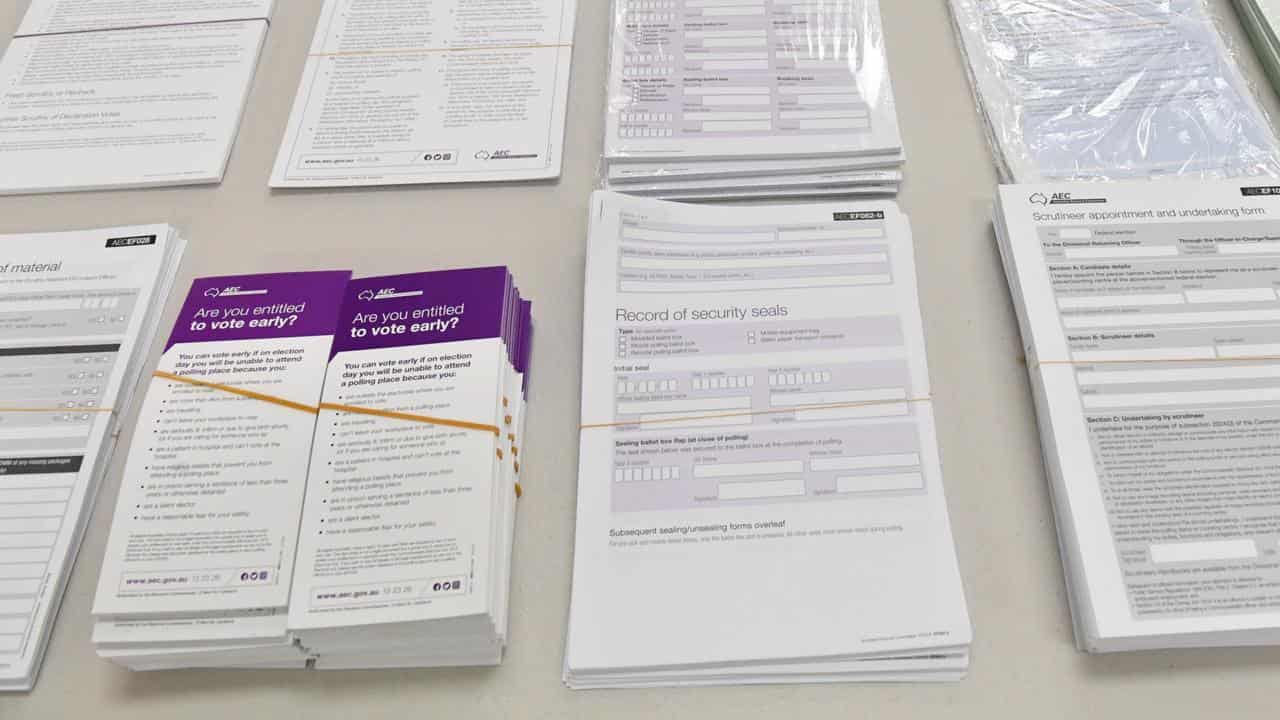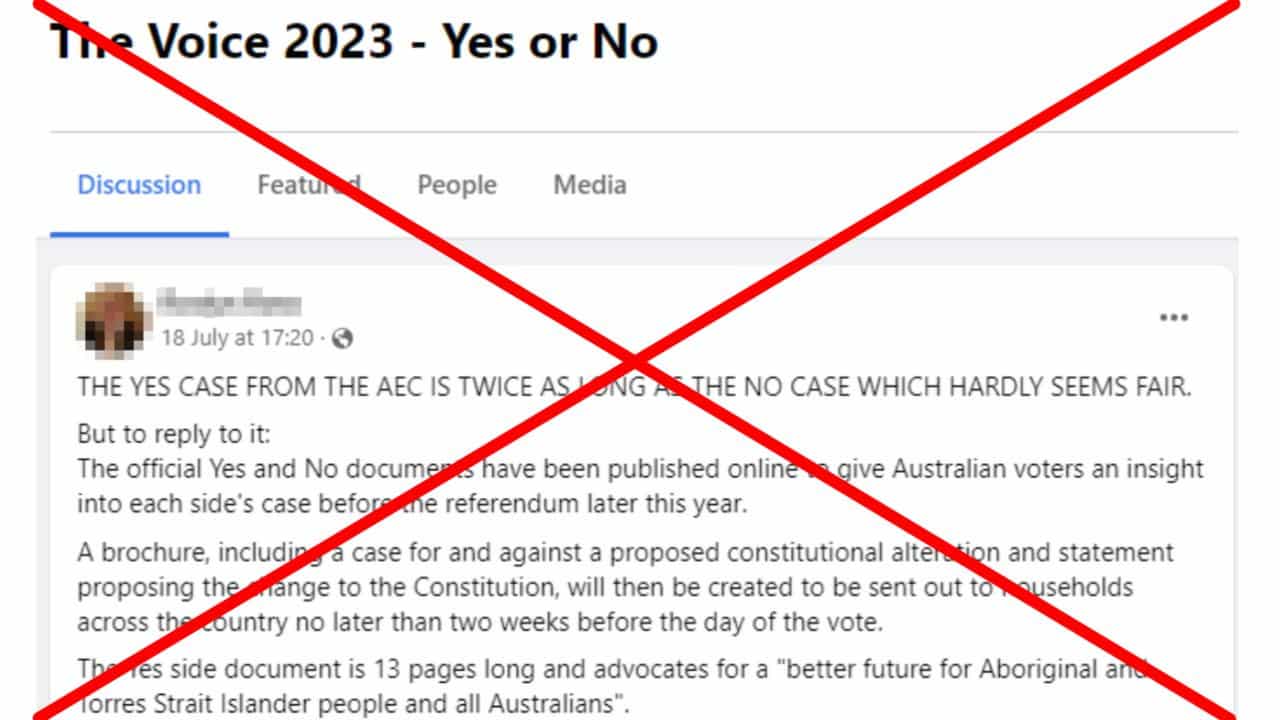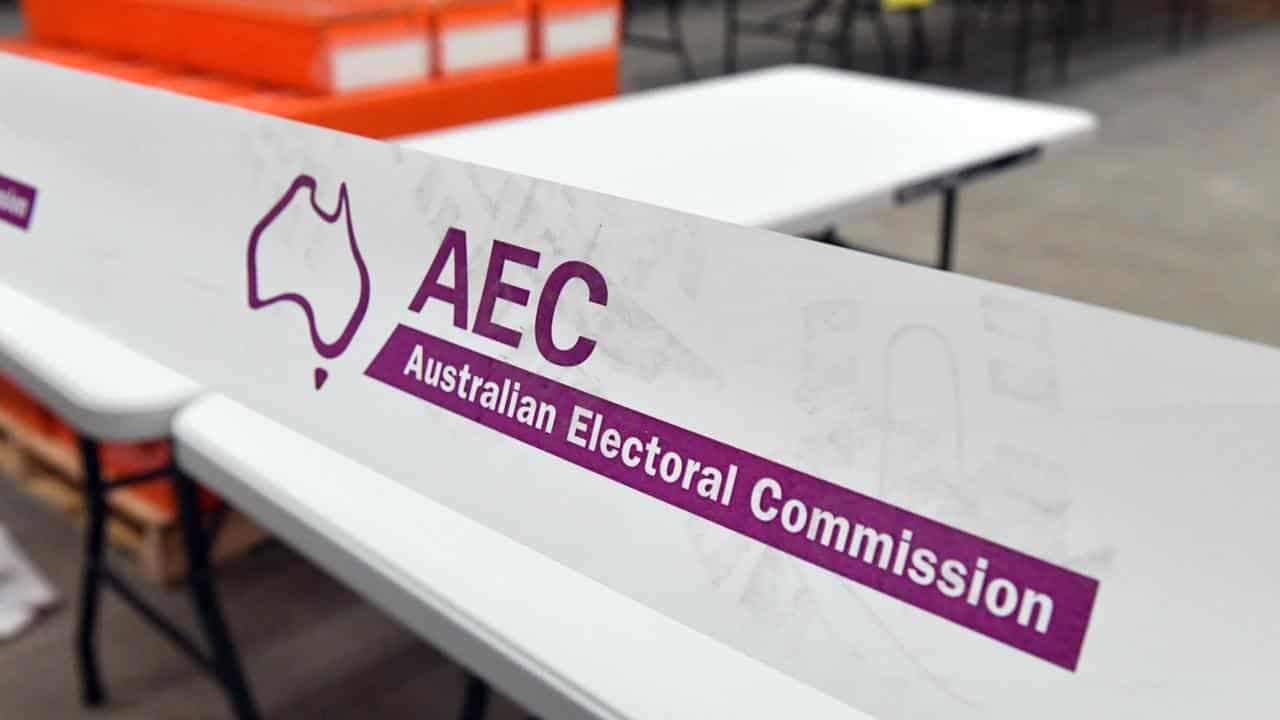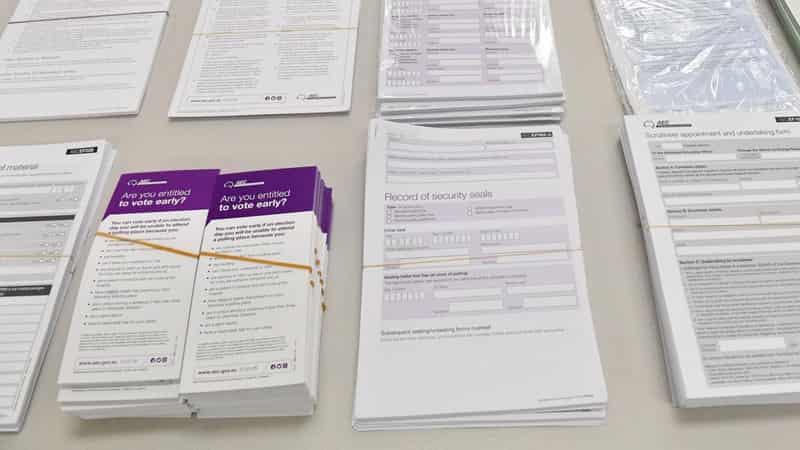
What was claimed
The 'yes' case in the official Indigenous voice to parliament referendum pamphlet is twice as long as the 'no' case.
Our verdict
False. They have almost identical word counts, but the 'yes' case was originally spread over more pages before formatting.
Opponents of the Indigenous voice to parliament are claiming unfair treatment, saying the 'yes' case in the referendum pamphlet published by Australian Electoral Commission (AEC) is twice as long as the 'no' case.
This is false. The AEC told AAP FactCheck it treated the cases equally and both statements were subject to the same 2000-word limit, set by legislation governing how the voice referendum will be conducted.
The two documents have an almost identical word count, but the 'yes' case statement was originally submitted on more pages with extra white space.
A Facebook post (screenshot here) claims the AEC unfairly gave the 'yes' case double the opportunity to argue its points than the 'no' case.
The post begins: "THE YES CASE FROM THE AEC IS TWICE AS LONG AS THE NO CASE WHICH HARDLY SEEMS FAIR."
The lengthy post is being widely shared across Facebook, as seen here and here.

The 'yes' and 'no' case arguments, which are both five pages long, were written by members of parliament, not the AEC, which is an independent federal agency in charge of organising and running the upcoming national vote.
Prior to the federal government’s introduction of the legislation for holding the voice referendum, it also amended the Referendum Act to bring it in line with modern election procedures.
That updated rules about referendum information pamphlet, dispensing with a requirement for a physical copy to be mailed to every household and instead for digital copies to be made available online.
However, the requirement that 2000-word arguments for and against a proposed constitutional change must be presented to voters has existed since the original act.
The electoral commission published print requirements for MPs and Senators contributing to the arguments for and against the proposed voice to parliament.
Under the heading 'What can be submitted' the requirements state: "As required by section 11(1) of the Act, the word limit for each case is 2000 words. A case with more than 2000 words will not be printed or distributed to electors."

AEC media and digital engagement director Evan Ekin-Smyth told AAP FactCheck the texts of the 'yes' and 'no' case pamphlets were authorised by parliamentarians, not the electoral commission.
"We have been at pains to advise people that our role is to effectively act as a post box for this product," Mr Ekin-Smyth said.
"Each case - the yes and no case - in the pamphlet runs for five pages (an equal amount of pages).
"The yes case has a total of 1967 words and the no case has a total of 1946 words.
"Each case had the exact same guidelines for their submission and the AEC has treated each case committee in exactly the same way."

The 'yes' and 'no' camps were required to submit their arguments to the AEC by 11.59pm AEST on July 17, 2023.
Archived web pages from July 17 show the 'yes' document submitted to the AEC was 13 pages long before being formatted and typeset, with large areas of white space on many pages, while the 'no' document was seven pages long.
A Sky News report on July 18 notes the different page counts.
A word count of the unformatted documents by AAP FactCheck shows the 'yes' document had 2014 words and the 'no' document had 1996 words.
The AEC confirmed that following formatting and typesetting, in line with the word count criteria on Page 5 of the print requirements, the 'yes' case had 1967 words and the 'no' case had 1946 words.
The Verdict
The claim that the 'yes' case in the official Indigenous voice to parliament referendum pamphlet is twice as long as the 'no' case is false.
Both arguments were subject to a 2000-word limit. The difference between them both in the document is 21 words.
The suggestion the Australian Electoral Commission unfairly treated the 'no' case argument is also false. The commission did not have any role in writing the documents, which were prepared by members of parliament and senators.
False - The claim is inaccurate.
AAP FactCheck is an accredited member of the International Fact-Checking Network. To keep up with our latest fact checks, follow us on Facebook, Twitter and Instagram.









